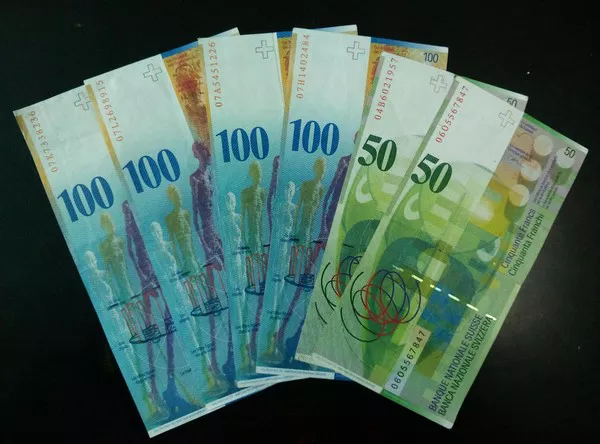The Swiss Franc (CHF) is renowned worldwide for its stability, security, and meticulous design. Among the various denominations of Swiss banknotes, the 20 Swiss Franc note holds a special place as a symbol of Swiss craftsmanship, culture, and financial integrity. In this article, we will explore the features, history, significance, and usage of the 20 CHF note, shedding light on its role in Switzerland’s economy and society.
Design and Features of the 20 CHF Note
The 20 Swiss Franc note boasts intricate design elements and advanced security features, reflecting Switzerland’s commitment to excellence and innovation. Let’s delve into the key aspects of its design:
Front Design:
The front side of the 20 CHF note features a portrait of the renowned Swiss composer and conductor Arthur Honegger, accompanied by musical notes and motifs representing Switzerland’s vibrant cultural heritage. The use of vibrant colors, intricate patterns, and detailed illustrations adds to the aesthetic appeal of the banknote.
Reverse Design:
On the reverse side, the note showcases a panoramic view of the Alpine landscape, with majestic mountains, serene lakes, and lush forests capturing Switzerland’s natural beauty. The imagery is complemented by security features such as a holographic stripe, color-shifting ink, and microtext, enhancing the note’s authenticity and integrity.
Security Features:
Swiss banknotes are equipped with state-of-the-art security features to prevent counterfeiting and ensure the trustworthiness of the currency. The 20 CHF note incorporates features such as a transparent window, tactile elements, UV-visible elements, and a unique serial number, making it highly resistant to replication.
Historical Significance of the 20 CHF Note
The issuance of the 20 Swiss Franc note is rooted in Switzerland’s rich history, tradition, and economic stability. Let’s explore its historical significance:
Economic Stability:
Switzerland has long been known for its strong economy, prudent fiscal policies, and sound monetary management. The 20 CHF note symbolizes Switzerland’s commitment to maintaining price stability, low inflation, and a secure financial system, contributing to the country’s reputation as a safe haven for investors and savers.
Cultural Heritage:
The choice of Arthur Honegger as the featured figure on the 20 CHF note reflects Switzerland’s appreciation for its cultural icons and artistic achievements. Honegger’s contributions to music and composition resonate with Switzerland’s tradition of excellence in the arts and humanities, underscoring the country’s rich cultural heritage.
Practical Usage and Accessibility
Beyond its aesthetic appeal and historical significance, the 20 Swiss Franc note serves practical purposes in everyday transactions and financial activities. Here’s how:
Retail Transactions:
The 20 CHF note is widely accepted by businesses, retailers, and service providers across Switzerland for a variety of transactions, including retail purchases, dining, entertainment, and transportation. Its convenient size and denomination make it suitable for everyday use.
ATM Withdrawals:
Swiss residents and visitors have access to a vast network of ATMs (Automated Teller Machines) that dispense 20 CHF notes, allowing for convenient cash withdrawals and financial transactions. ATMs are located in urban centers, shopping malls, banks, and transportation hubs throughout Switzerland.
Cultural and Economic Impact of the 20 CHF Note
The 20 Swiss Franc note has a broader impact on Switzerland’s cultural identity, economic landscape, and global reputation. Let’s explore its significance:
Cultural Identity:
Swiss banknotes, including the 20 CHF note, play a crucial role in preserving and promoting Switzerland’s cultural identity, heritage, and values. The depiction of iconic figures, landmarks, and symbols on banknotes reinforces a sense of national pride and unity among the Swiss population.
Economic Symbolism:
The widespread circulation and acceptance of the 20 CHF note underscore Switzerland’s economic strength, financial sophistication, and global competitiveness. As a key component of Switzerland’s monetary system, the Swiss Franc serves as a reliable store of value and a symbol of economic stability.
Conclusion
The 20 Swiss Franc note embodies Switzerland’s commitment to excellence, innovation, and cultural heritage. With its stunning design, advanced security features, and historical significance, the 20 CHF note serves as a testament to Switzerland’s reputation as a leader in finance, culture, and craftsmanship.
FAQs about the 20 Swiss Franc Note
1. Can I use the 20 CHF note for transactions outside of Switzerland?
While the 20 CHF note is legal tender in Switzerland, it may not be widely accepted for transactions outside the country. It is advisable to exchange Swiss Francs for the local currency of the destination before traveling abroad.
2. Are there any commemorative editions of the 20 CHF note?
The Swiss National Bank occasionally issues commemorative banknotes to mark special occasions or events, but there are no specific commemorative editions of the 20 CHF note at this time. The standard design and features remain consistent for regular circulation.
3. How long is the lifespan of a 20 CHF note?
The lifespan of a banknote depends on various factors such as circulation volume, handling, and storage conditions. On average, Swiss banknotes have a lifespan of several years before they are withdrawn from circulation and replaced with new notes.
4. Can I exchange damaged or worn-out 20 CHF notes for new ones?
Yes, the Swiss National Bank offers exchange services for damaged or mutilated banknotes, including the 20 CHF note. Individuals can submit damaged banknotes to authorized banks or directly to the Swiss National Bank for assessment and replacement.
5. Are there any security features on the 20 CHF note to prevent counterfeiting?
Yes, the 20 CHF note is equipped with advanced security features such as a transparent window, holographic stripe, color-shifting ink, and microtext, among others, to prevent counterfeiting and ensure the integrity of the currency.


